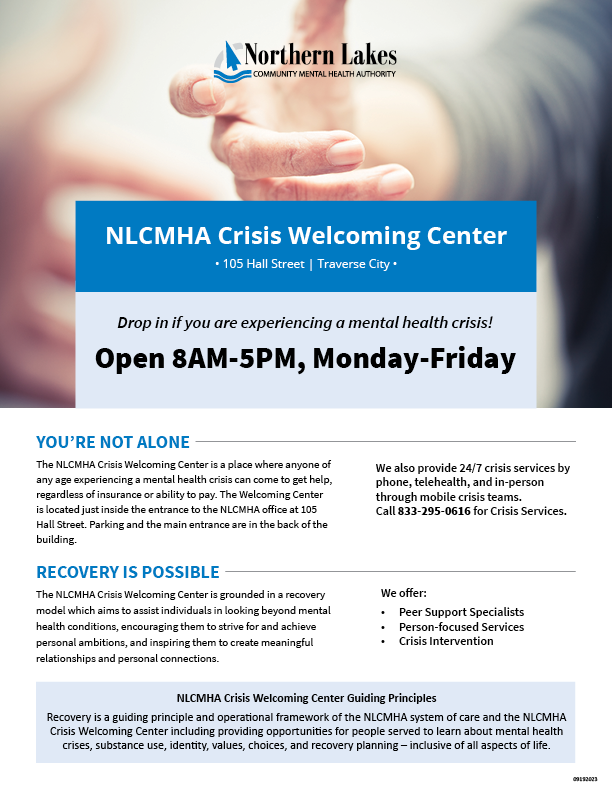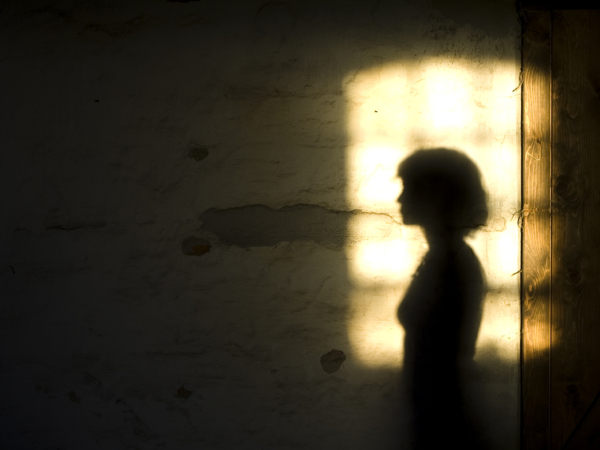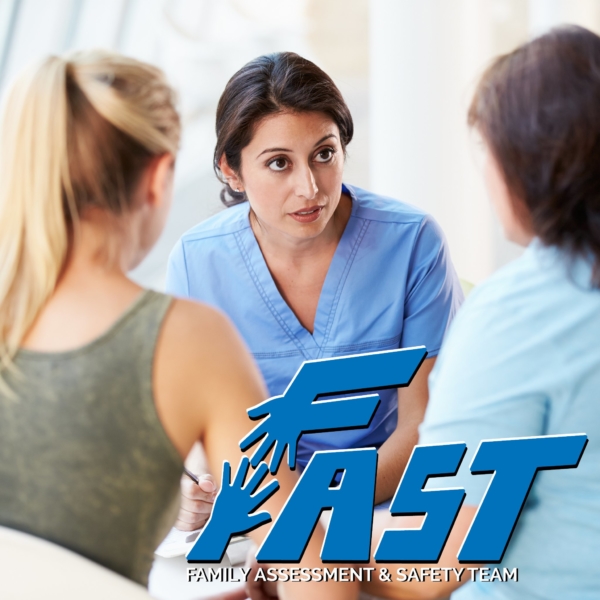Mental Health Crisis Services
If you or someone you know is at immediate risk of seriously harming themselves or someone else, call 911.
In a mental health crisis, call 1-833-295-0616
24 hours a day, 7 days a week (711 TTY)
Crisis services are available to any person of any age experiencing a crisis, regardless of insurance or ability to pay.
This video contains an overview of Northern Lakes services for people with mental health issues, including 24/7 crisis services.



